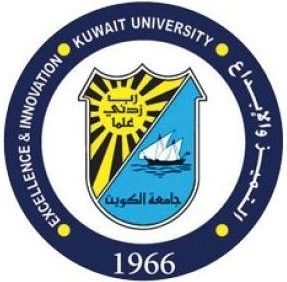About the Center:
On May 29, 1994, A decision was issued by the Minister of Education, the Minister of Higher Education, and the Supreme President of the University to establish Center for the Gulf and Arabian Peninsula Studies as one of the specialized research and studies centers operating under the auspices of the research sector at Kuwait University. On September 14, 2011, the Minister of Education, the Minister of Higher Education, and the Supreme President of the University issued a decision to include Center for Strategic and Future Studies to the Center for the Gulf and Arabian Peninsula Studies.
The Center’s Main Terms of Reference:
1) Supervise the preparation of Scientific Research and provide all supporting service
2) Collect Scientific materials such as books and publications, then classify, archive, and store them in special files for Researchers and Beneficiaries.
3) Supervise the preparation of Future and Strategic Studies in the Gulf and Arabian Peninsula Field and in all areas of interest to the states of the region.
4) Follow up and monitor the public opinion trends on all issues that concern the States of the region.
The Center’s Overall Objective:
Center for the Gulf and Arabian Peninsula Studies aims to create an environment conducive to research and scientific studies dealing with Gulf and Arabian Peninsula issues in its various fields, as well as Strategic and Future Studies issues that concern the Arab and Islamic region, and its impact on the Gulf countries. Collecting, classifying, and preserving historical and contemporary documents related to the region, in particular Arab Gulf States.
The Center’s Detailed Objectives:
1)Encourage scientific research and enrich the library with research and studies
2) Contribute to the dissemination of specialized research and studies that serve the goals of the Center.
3) Provide Future and Strategic Studies to benefit from, in all aspects that serve the region
4) Recognize public opinion trends in all issues and different areas, to benefit in the formulation of development plans in society and propose appropriate solutions for decision makers in different fields.
5) Closer links and strengthening cooperation with community-based institutions and the private sector to serve civil society in the States of the region
Hits : 0